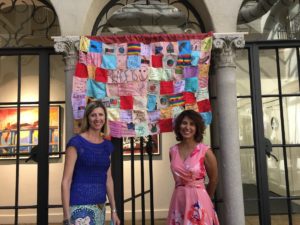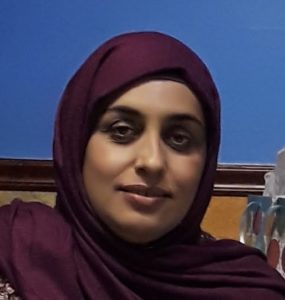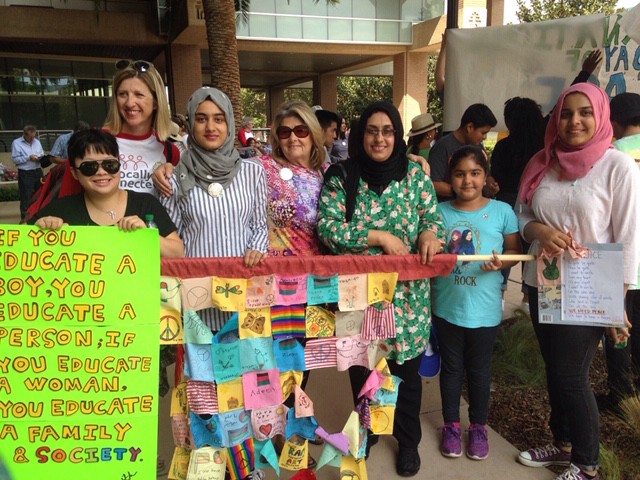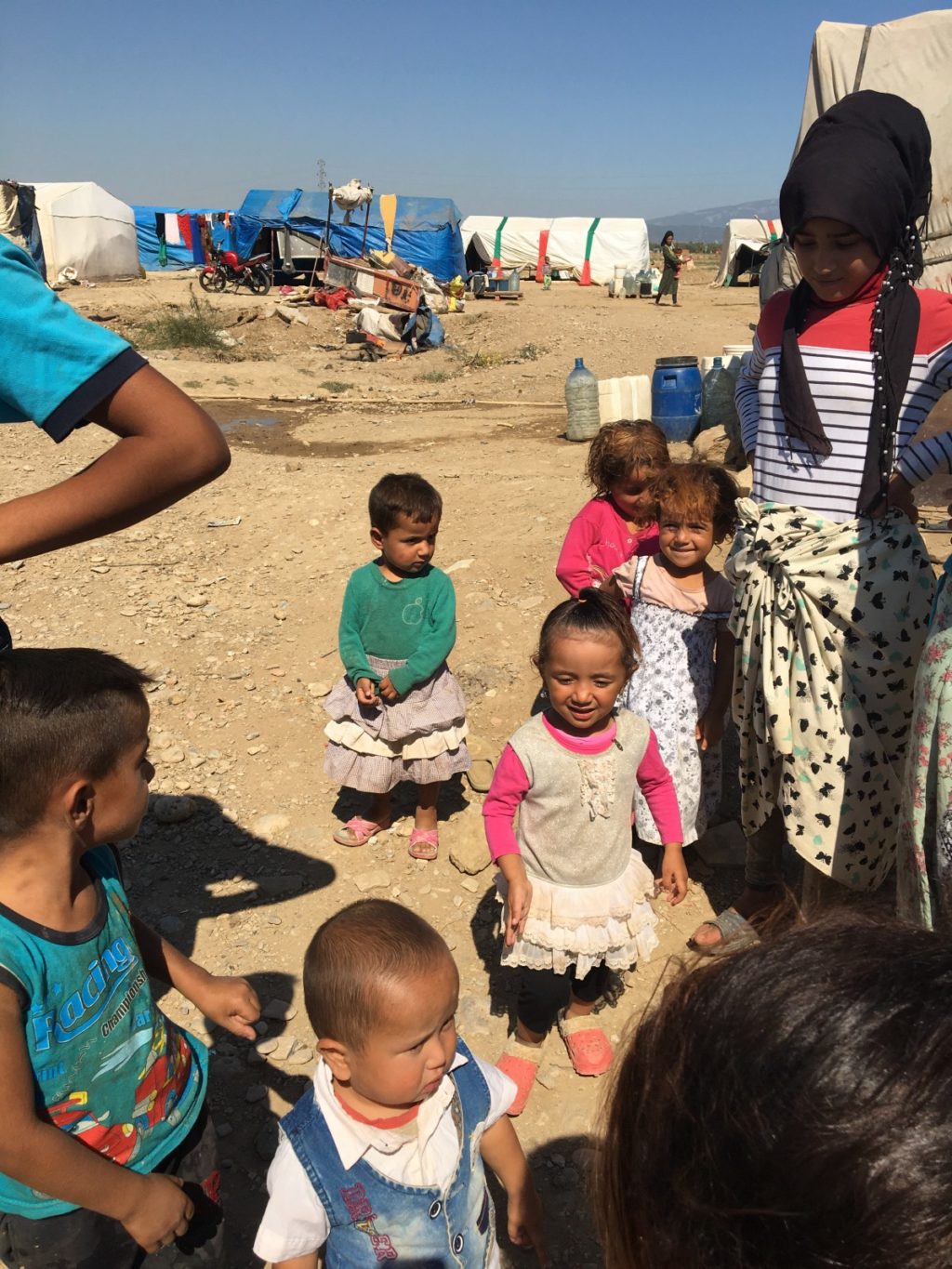Seeing Through the Eyes and Stories of Refugees
Re-posted from a blog post
Every year, millions of men, women, children, families are caught in a crossfire of political conflicts, war, and violence in many countries like Syria, Yemen, and Afghanistan. According to UNHCR, there were about 68 million people forced to leave their homes and countries due to violence, conflict, and persecution by the end of 2017. With such disturbing numbers, it puts a spotlight on how we, as individuals and a country, deal with refugees who have been marginalized and displaced.
Selin Nielsen, co-founder of Glocally Connected in Southern California, shared her experiences working with helping refugees. She and co-founder Sherry MacKay established various programs for refugees, such as English classes, transportation assistance, and childcare, that help them adapt and connect with the community. With a background in education and specialty in International Migration, she has worked tirelessly on raising awareness on the plight of refugees and the process of integrating them to their new culture and environment. “The goal when we started working with refugees is social integration, connecting them to the new society they live in, and overcoming discrimination,” Selin shared.

Discrimination, due to common misconceptions, is one of the biggest challenges among refugees. “Oftentimes, we think of refugees as dangerous and unskilled people. The reality is these are simply people who didn’t have a choice but to leave their country because their lives and the welfare of their families are at risk. As a matter of fact, they go through rigorous security clearances, with the whole process taking up 1–2 years,” Selin explained.
From the time of visa application up to their destination in another country, refugees are caught in a predicament of how to assimilate and start a new life. “Language barrier is a big issue for them, especially for women who don’t speak English. Upon their arrival, they are given 3 months to learn the language, find job, find schools for their kids, and go through health screenings. It’s such a short time to accomplish all these things”, Selin underlined.

Fariba is one of the refugees who fortunately escaped danger in Afghanistan. Due to her active involvement in education, human rights and women empowerment in her home country, her life and her family’s welfare were put at risk. “I would receive phone calls threatening they would kidnap me and my daughters,” Fariba recalled. Few years ago, she and her family successfully relocated to the United States. The decision to relocate wasn’t easy. “When you’re an advocate for human rights and women in Afghanistan, your life is on the line. Women need me to work with them, but it’s also important for me to protect my life and my family’s. It was a difficult decision to make coming here…,” she shared.
Moreover, adjusting to the new life in the United States also posed challenges. “My English wasn’t good but I can speak, read, and write a little bit. Even though I had a law degree, it was hard for me to find a job. Back in my home country, they destroyed schools. So, with me starting over here, I intend to go back to school, get educated, and finish my degree,” Fariba said.
With the help of Glocally Connected, she managed to go back to school and enroll her children. Fariba’s husband found a professional job through the generosity of Selim Yildiz who runs a company. “I don’t really consider them as refugees because these are individuals with work permits, who can legally work in the country,” Selim underlined. Having hired four refugees for his company, Selim had nothing but remarkable comments. “Language barrier was their biggest challenge at first, but they found a way to overcome it. These are some of the most hardworking people, with engineering and legal backgrounds, that I’ve ever had. Beyond their professional skills and experiences, Selim recognized the resilience and gratitude they have that are reflected on their work ethics. “Their work ethic is incredible. It doesn’t matter what background they come in, they take the job, they work hard, they’re very grateful.”
Norette, a volunteer for Glocally Connected, also shared similar positive remarks on her experience helping with the refugees. With her background in special education, she took active participation teaching English to women and assisting them with transportation. “It was such a wonderful experience helping these individuals, learning what they had to go through to get here. Ultimately, they just want safety for their families,” Norette shared.

Norette recognized the need to step outside of our own boxes and put ourselves in other’s shoes. As someone who didn’t have much experience and exposure on cultural diversity, she acknowledged she needed to see for herself what’s going on. “You just never know until you get in their shoes. Not knowing if your country will ever be put back together, that’s quite heartbreaking. As I continue to work with these remarkable individuals, I have come to realized they’re just neighbors I haven’t met yet,” Norette said.
For Norette, their stories and culture are not quite different from the American culture back in the 1930’s and 1940’s. “Back then, women stayed home, they didn’t have many jobs open to them. They raised four to five children. So, we also have to remember where we came from.” At the end of the day, we’re all similar on human experiences.

This similarity on a human level echoes even across the globe. Journalist and photographer, David Danelski, had the opportunity to travel to Turkey and meet with many refugees living in camps. “People are living in tents, they have woodstove inside the tents, there’s carpet on the floor. Everyone was extremely friendly. They cooked and offered us food to eat. Children are everywhere. They’re very curious and friendly. Overall, it was a warm and positive experience,” David described.
David painted a picture of men, women and children making the most of what they have. Despite the difficult circumstances and their traumatic pasts, they never lost the resilience to survive and live life to the best they could. “I found it interesting that people who had very little are so generous. They’d offer us food and drinks even though we’re not in dire situation. These individuals don’t really have any alternatives, so it’s important to help them on a humanitarian level,” David underscored.
In celebration of World Refugee Day, it’s important for every one of us to be properly informed on the incredible stories and experiences that refugees had gone and have been going through around the world. Despite our different circumstances, cultures, ethnicities, and backgrounds, we all share one thing — we’re human. “Our main goal at Glocally Connected is to raise awareness and connect refugees with their community. It doesn’t matter where you came from, everybody has the right to live their lives within a safe environment…it’s a human right,” Selin concluded.



